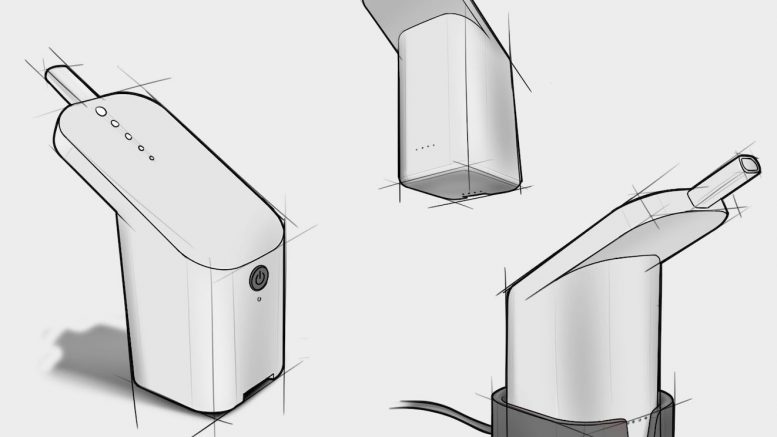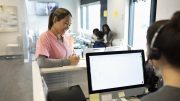Most people would likely agree that the healthcare industry is in need of a good shakeup, particularly in the domains of disease screening and diagnostics. Outdated protocols and long wait times for screening often snowball into delayed diagnoses for illnesses that are most treatable in their early stages. Enter the sense of smell: a valuable tool used in disease diagnostics for centuries, but largely marginalized in modern medicine. Now, with recent advancements in AI-powered, digital odour perception, a ground-breaking opportunity for early disease screening has emerged, one poised to revolutionize healthcare. Noze, a Canadian company that has been working on digitizing the sense of smell since 2014, believes that smell could very well be the next frontier in healthcare innovation.
The Rise of AI for Digital Odour Perception
While sound, vision, and touch have been successfully digitized with technologies like microphones, cameras, and haptics, digitizing smell has remained an elusive challenge. Most odours are distinctive, so in a perfect world each would simply have its own digital “fingerprint” making them easy to identify – however, reality proves more complex, as odors exist in dynamic backgrounds made up of a variety of other odours. This complexity has long hindered companies seeking to crack the code of digital odour perception. For decades, sensor technologies have grappled with reliably deciphering and interpreting odor fingerprints due to the issue of background odor interference. But recent breakthroughs have enabled the development of an AI-enabled platform capable of detecting a wide range of odours with exceptional speed and remarkable precision, even within the most chaotic of environments. The bedrock of this ground-breaking platform stems from a series of patents originating from NASA’s Jet Propulsion Laboratory (JPL) and exclusively licensed to Noze.
Holistically, this digital odour perception platform mimics the sensory process of mammals. It begins with a singular sensor chip loaded with a diverse set of chemical receptors akin to a nose. When an odor meets these receptors, they generate a distinct digital fingerprint analogous to neural patterns in a mammal’s olfactory system. The AI engine subsequently carves out the extraneous background noise, enabling it to identify the specific odours within the remaining “clean” fingerprint.
The Emergence of an AI Health Breathalyzer for Early Disease Screening
A uniquely transformative application of this odour perception platform is the potential for screening diseases through the analysis of human breath. Certain diseases, including various cancers, neurological disorders, and infectious diseases, release unique odour biomarkers, also known as volatile organic compounds (VOCs), discernible within exhaled breath.
Being able to consistently capture quality breath samples and reliably identify the presence of any disease odour biomarkers could pave the way for a multi-disease screening platform. This is precisely why Noze has built a breath analysis device – a breathalyzer – powered by their platform, and is currently amassing a repository of distinct biomarker fingerprints linked to various medical conditions.
The ultimate vision for Noze’s breathalyzer is the creation of a portable, cost-effective, non-invasive screening tool for healthcare professionals. This AI-powered medical breathalyzer promises faster and earlier disease detection, optimizing treatment efficacy and reducing costs, thus enhancing patient outcomes.
The Power of Early Screening: Lung Cancer
One of the most significant health conditions that could benefit from the AI health breathalyzer is lung cancer. This disease tops the chart for cancer-related deaths worldwide, surpassing breast, colon, and prostate cancers combined. And yet, most cases of lung cancer are diagnosed at later stages compromising treatment options and survival rates.
The Lung Cancer Research Foundation estimates that 1 in 16 people will be diagnosed with lung cancer in their lifetime. Currently, only 16% of lung cancer cases are diagnosed at an early stage, often incidentally during unrelated examinations. Early diagnosis is a particular challenge among high-risk individuals with only 6% undergoing any form of screening today. Enhanced screening holds the promise of earlier diagnoses, which could have a significant impact on patient outcomes.
The Road Ahead: Smells Like Healthcare Progress
AI-powered, breath-based analysis and diagnostics wields immense potential to radically transform healthcare for good. By harnessing AI and machine learning for digital odour perception, this technology has the power to revolutionize disease screening, enabling swift diagnostics and improving patient outcomes.
The technology’s significance in healthcare is already gaining traction, exemplified by a recent $1 million grant from the Bill and Melinda Gates Foundation. Collaborative clinical studies with prominent hospitals worldwide are also underway, underscoring the medical community’s enthusiasm for odour-based disease screening.
Without doubt, this AI-enabled, breath-based diagnostic technology can change the world of healthcare by minimizing disease impact, enhancing systemic efficiencies, and elevating quality of life. With continued research, innovation, and collaboration, we are on the cusp of a new era in healthcare, where breath-based diagnostics will play a pivotal role in early disease screening.
Imagine living in a world where our breath analysis can help screen us for a variety of debilitating diseases before any physical symptoms manifest. This is the world Noze is on a mission to create.
By Karim Aly, CEO of Noze





